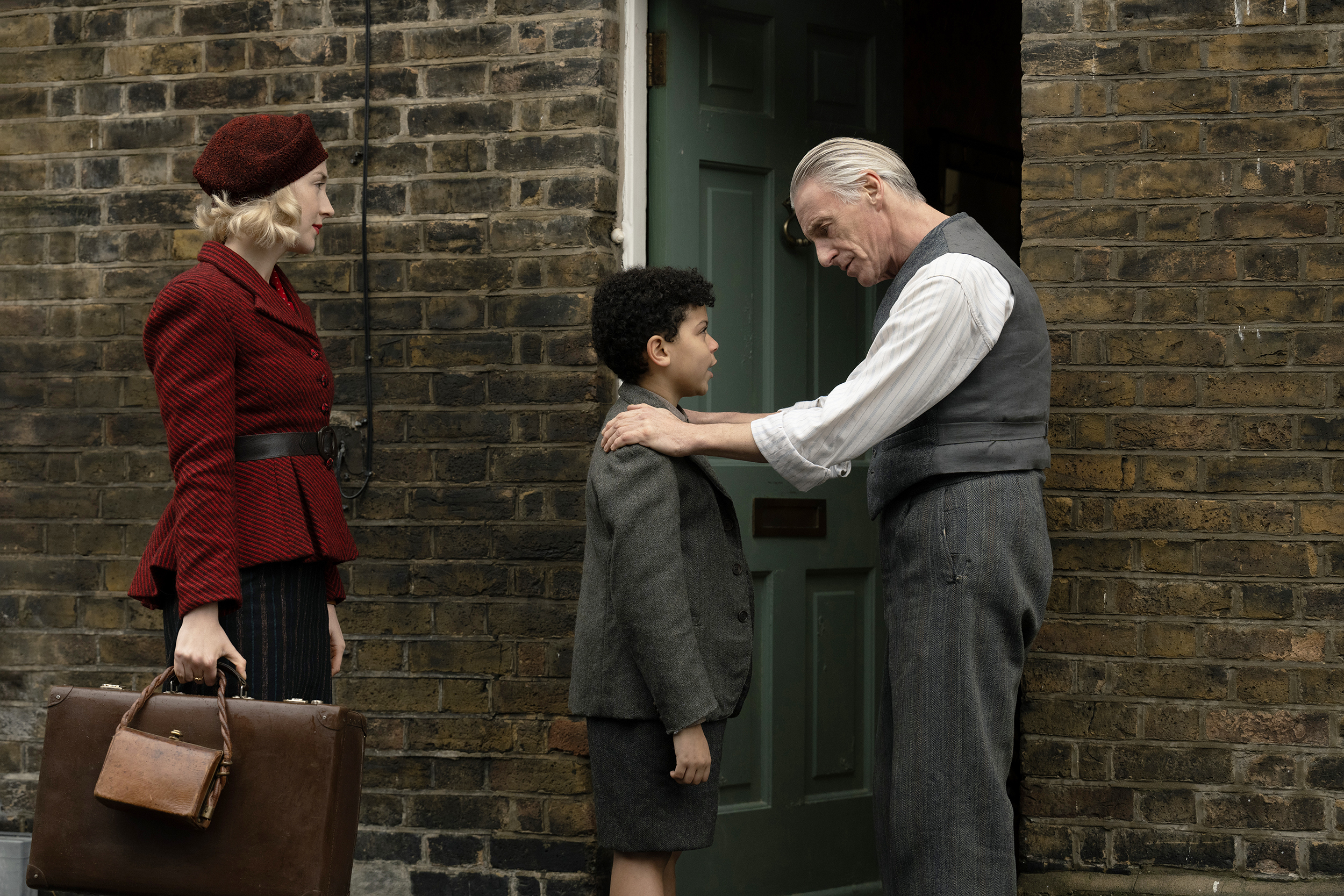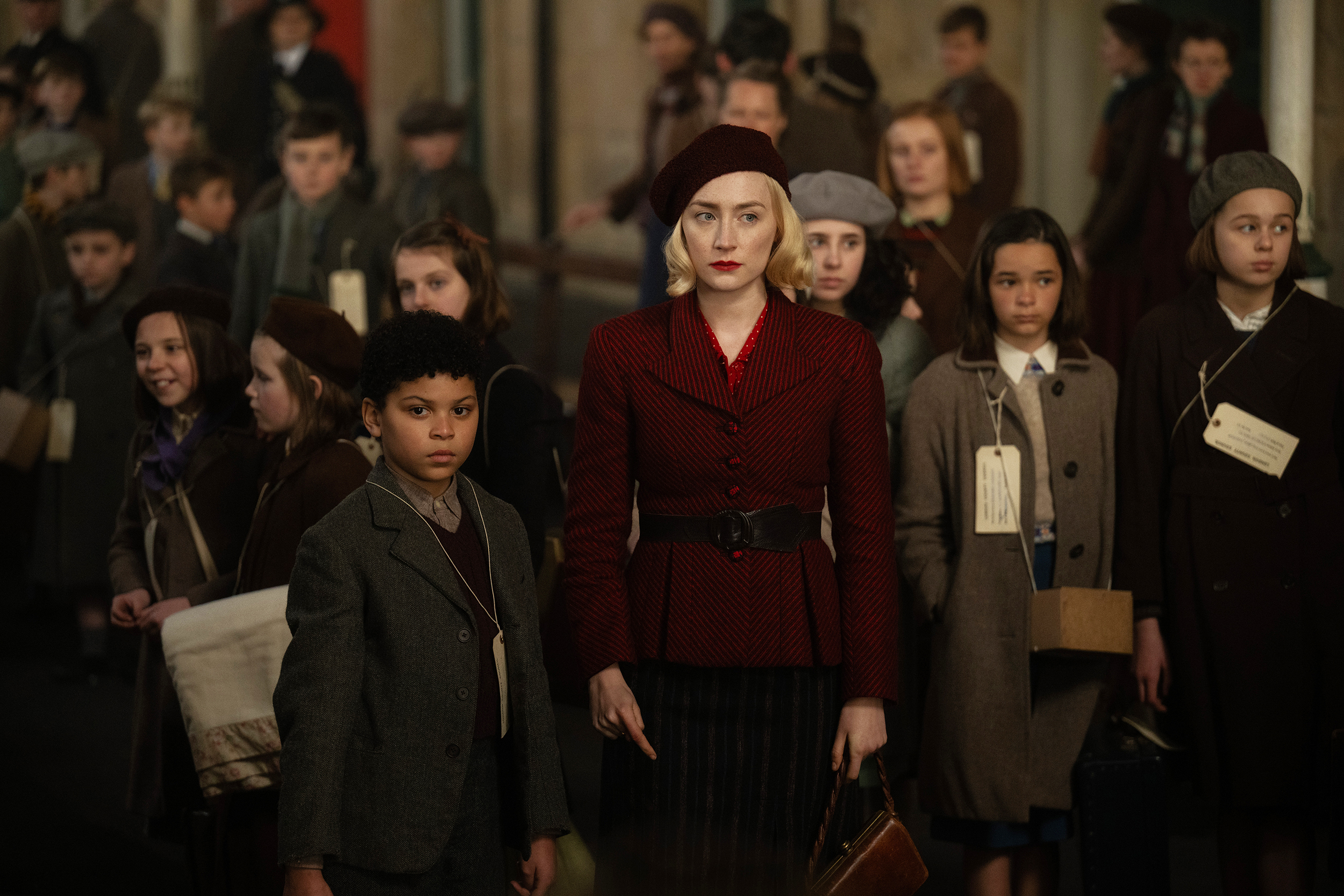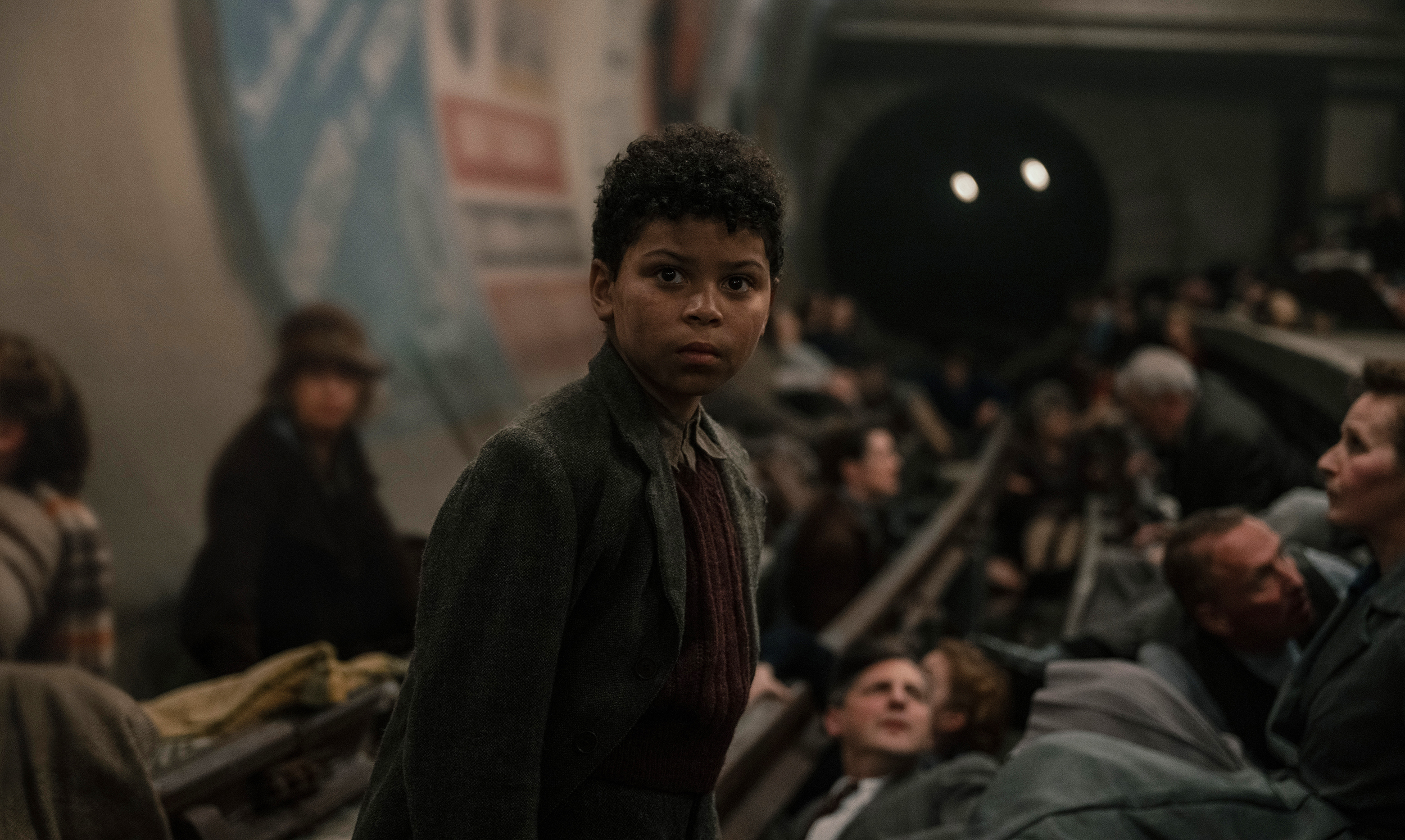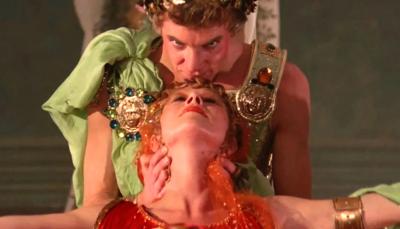'Blitz' Fails to Fire Up a New Way of Looking at World War II

Saoirse Ronan as Rita and Elliott Heffernan as George in 'Blitz'
Apple TV+
Longing, survival, and the thin line between destructiveness and compassion course through Steve McQueen’s Blitz, a displaced family drama that compromises on the British filmmaker’s stark and arresting style for a film that’s too eager to win you over and lacking what makes his films unique. Set over a few intense days in a London under siege, Blitz stars Saoirse Ronan as Rita, a single mother and factory worker whose young son George (Elliott Heffernan) is evacuated from the dangers of 1940 London but after escaping from a train ferrying him to the safe countryside, George begins a perilous journey back to his mother’s arms in the hopes that two lost, lonely souls can find peace in the ruins of London.
Starting in late 1940 and ending just before America joined the war (a period recognized as a low point for Britain’s prospects in WWII), the Nazis targeted British naval and industrial hotspots in deadly nighttime raids. It was an intense period of immediate change. However, the harrowing displacement, claustrophobia, and urban desolation have been co-opted over the years by British traditionalists as a symbol of British resilience under extraordinary circumstances.
Whether it’s in response to global pandemics or government-enforced austerity, the “Blitz spirit” mantra of keeping calm and carrying on has been fetishized by Britain’s least imaginative thinkers as something moral, upstanding, and symbolic of what the country is like. This is, of course, a revisionist fantasy, not least for the fact that during the time of the Blitz, things were tangibly worse for every segregated, impoverished, sick, or marginalized member of British society – even without the Nazi bombs falling from the sky.
If any filmmaker wanted to demythologize the bombings with a painfully meditative style and a sharp eye for the violence sewn into British society, it’s Steve McQueen. The contemporary artist (who won the Turner Prize in 1997) has turned his filmic eye to urgent, searing human struggles since his IRA imprisonment drama Hunger debuted in 2008. The Best Picture winner 12 Years a Slave, the Black Britain historical miniseries Small Axe, and even his socially conscious Chicago-set heist thriller Widows all move with patience and a purpose that marks out McQueen as an intelligent filmmaker, who also wants to explore through physicality how history’s grief and trauma can be expressed.
The fact that McQueen has been so shrewd and powerful in the past makes Blitz disappointing. The film starts promisingly, immersing us in a street encased in flame, with firefighters battling a high-pressure hose even though the building is past saving. There’s a sense of urgency but also futility as Londoners have to fight to be let into tube stations where – as one hellish flooding sequence later reveals – safety during the Blitz was a subjective and flexible notion. But outside abstract and disorienting shots that announce the approach of faceless bombers or the intrusions of archive footage of undisturbed flowers, McQueen approaches Blitz like it was no more ambitious than a rote television special.
Gone are the rigorous, punishing silences where we sit alone with his isolated characters; McQueen instead favors a style that tells us how to feel at every moment. Grown-ups take turns giving George rote life lessons; internal conflict is shown through close-ups of frowning faces; multiple air raid shelters bear witness to faux-poignant speeches about What The Blitz Even Means for a divided Britain – a choice that undercuts McQueen’s anti-traditionalist values and circles back to preachy revisionism.
It doesn’t help that there are basically no characters in Blitz – both Rita and George are blank slates with singular goals (not a bad thing, especially in historical survival films) and little personality, reacting to the world around them with a creeping sense of passivity, despite how urgent and immediate their missions are. It’s incredibly disappointing for Ronan, one of the more compelling actresses working, that McQueen has decided his adult protagonist cannot express herself above a timid timbre unless she’s apoplectic with fear for her child.
Her factory buddies Tilda (Hayley Squires) and Doris (Erin Kellyman) may be caricatures of working-class sisterhood; however, they are ably and emotionally performed, and there are far more arresting screen presences than Rita. Don’t bother watching Blitz if you’re a Harris Dickinson superfan – as a monotone fireman, he barely impacts the story and a handful of inconsequential lines.
Blitz’s two-hour runtime becomes more challenging to sit through as the film devolves into sequential episodes that George joins and leaves without changing significantly. His fraternity with scrappy runaway brothers is cruelly ripped apart in a train yard; his friendship with Ife (Benjamin Clémentine), a Nigerian night warden, abruptly changes his perspective on race before being tragically cut short off-screen; his absorption into a band of abusive criminals led by the psychotic Albert (Stephen Graham) and Beryl (Kathy Burke) is so overcooked that it acts as a final breaking point for anyone still tentatively curious that Blitz will turn out good.
One scene in Blitz delivers on the verve, discipline, and vision that we expect from McQueen. We cut to a busy jazz nightclub, where Black musicians and singers hold court over the merry, wealthy revelers with tremendous presence and musical skill. Suddenly, the music cuts out, and the camera draws toward the ceiling corner as everyone listens to the drone of approaching planes. Over a silent transition, we see the club as our characters found it – dark, bombed out, full of immobile corpses.
The line between joy and tragedy, spirited life and instant, meaningless death, is confronting and tragic. It is the perfect material for McQueen to unpack a romanticized period in British history. He only briefly indicates he knows what to do with it.
Blitz debuted at the 2024 BFI London Film Festival. It will land in U.S. theaters on Friday, November 1, before arriving on Netflix for Thanksgiving weekend on Friday, November 22, 2024.







